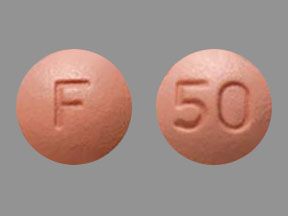Galantamine Dosage
Medically reviewed by Drugs.com. Last updated on Jul 29, 2025.
Applies to the following strengths: 4 mg; 8 mg; 12 mg; 4 mg/mL; 16 mg; 24 mg
Usual Adult Dose for:
Additional dosage information:
Usual Adult Dose for Alzheimer's Disease
Immediate release tablet and oral solution:
Initial dose: 4 mg orally twice a day, preferably with morning and evening meals
- After a minimum of four weeks, increase to 8 mg twice a day, then after an additional 4 weeks, may increase to 12 mg twice a day
Maximum dose: 24 mg/day
Extended release capsule:
Initial dose: 8 mg orally once a day, preferably with the morning meal
- After 4 weeks, dose should be increased to 16 mg once a day, a further increase to 24 mg once a day may be considered after a minimum of 4 weeks of taking 16 mg/day
Maximum dose: 24 mg/day
Conversion from Immediate-Release (IR) Tablets or Oral Solution to Extended-Release (ER) Capsules:
- Take the last dose of IR formulation n in the evening prior to starting ER capsule; start ER capsule following morning at once a day dosing
- Converting from IR to ER should occur at the same total daily dosage
Comments:
- During clinical trials, an immediate-release dose of 32 mg per day was found to be less well tolerated and did not increase clinical benefit; dosing at 24 mg/day was not found to provide statistically significant increased clinical benefit from 16 mg/day; however, it might provide additional benefit for some patients.
- Dose increases should be based upon assessment of clinical benefit and tolerability of the previous dose.
- If therapy is interrupted for more than 3 days, the patient should be restarted at the lowest dosage and the dosage escalated to current dose.
Use: For the treatment of mild to moderate dementia of the Alzheimer's type.
Renal Dose Adjustments
Moderate renal impairment (CrCl 9 to 59 mL/min: Maximum daily dose should generally not exceed 16 mg/day
Severe renal impairment (CrCl less than 9 mL/min): Not recommended
Liver Dose Adjustments
Moderately Impaired Hepatic Function (Child-Pugh score of 7 to 9): Maximum daily dose should generally not exceed 16 mg/day
Severe Hepatic Impairment (Child-Pugh score of 10 to 15): Not recommended
Precautions
CONTRAINDICATIONS:
- Hypersensitivity to active drug or any product excipients
Safety and efficacy have not been established in patients younger than 18 years.
Consult WARNINGS section for additional precautions.
Dialysis
Data not available
Other Comments
Administration advice:
Ensure adequate fluid intake during therapy
- Immediate-release tablets and oral solution: Take orally twice a day, preferably with morning and evening meals
- Extended-release capsules: Take orally once a day, in the morning, preferably with food
- If therapy is interrupted for more than 3 days, patient should restart at the lowest dose and escalate to their current dose.
Storage requirements: Do not freeze the oral solution
General:
- Dose increases should be based upon assessment of clinical benefit and tolerability of the previous dose.
- The abrupt withdrawal of this drug has not been associated with increased frequency of adverse events.
- The beneficial effects of the drug are lost when the drug is discontinued.
Monitoring:
- Monitor weight
- Monitor for seizure activity
- Monitor respiratory function
- Monitor for gastrointestinal bleeding
- Monitor for skin rash
Patient advice:
- Patients should be instructed to stay hydrated throughout therapy
- Patients should be instructed to stop therapy and contact their healthcare provider promptly if they develop a skin rash.
- Patients should be instructed to contact their healthcare provider if they miss more than 3 consecutive days of therapy as retitration will be needed.
- Patients taking oral solution should be provided with an instruction sheet describing how the solution is to be administered.
- Patients should be counseled on their ability to drive and/or performance of hazardous activities; this drug may cause dizziness and somnolence, especially during first weeks of therapy.
Frequently asked questions
- What drugs can help improve or slow down memory loss?
- Is Razadyne (galantamine) used to treat Alzheimer’s?
More about galantamine
- Check interactions
- Compare alternatives
- Pricing & coupons
- Reviews (16)
- Drug images
- Side effects
- During pregnancy
- Drug class: cholinesterase inhibitors
- En español
Patient resources
- Galantamine drug information
- Galantamine (Advanced Reading)
- Galantamine Tablets
- Galantamine Extended-Release Capsules
- Galantamine Solution
Other brands
Razadyne, Razadyne ER, Reminyl
Professional resources
Other brands
Related treatment guides
See also:
Further information
Always consult your healthcare provider to ensure the information displayed on this page applies to your personal circumstances.


